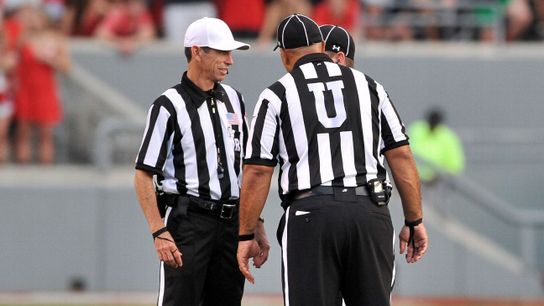The typical FBS game is taking three hours and 22 minutes to complete, a 4-minute increase from 2017.
According to a report from Seth Emerson of The Athletic, NCAA officials have pinpointed the cause of ever-lengthening games, and it's not replay or TV timeouts.
Officials believe an increase in pass plays is what is stretching games longer and longer, and so a proposed solution would be to treat incomplete passes like plays where the ball runs out of bounds -- the clock stops only until the ball is set for play, at which point it runs again, except for in the final two minutes of the first half and the final five minutes of the game.
However, the numbers cited in the article point to a different solution.
Teams are passing more because they're getting better at it. The typical FBS game includes 23.9 incompletions per game, compared to 27.9 twenty years ago. (Rushes per game are down to 74.6, down from 79 in 2002.)
The median FBS offense is completing 63 percent of its passes so far this season, compared to 58.3 percent in 2009 (the earliest date on record in the CFBStats database.)
As such, first downs are at an all-time high: 43.4 per game, compared to 40.9 in 2012 and 39.5 in 2002.
The obvious solution seems to be to adopt NFL-style game management rules, a limited number of replay stoppages and a rolling clock after first downs.
Yet Steve Shaw, the NCAA's coordinator of officials, doesn't seem interested in either option.
NCAA data says replay only adds four minutes per game, and the quote below indicates, if left up to Shaw, the NCAA would sooner re-start the clock after incompletions than first downs -- even though there are 20 more first downs than incompletions per game.
“Even though you think, ‘Man you’d save 10 seconds every first down,’ you really probably won’t,” Shaw told The Athletic. “That probably won’t have as big an impact as re-starting it after incompletions.”
